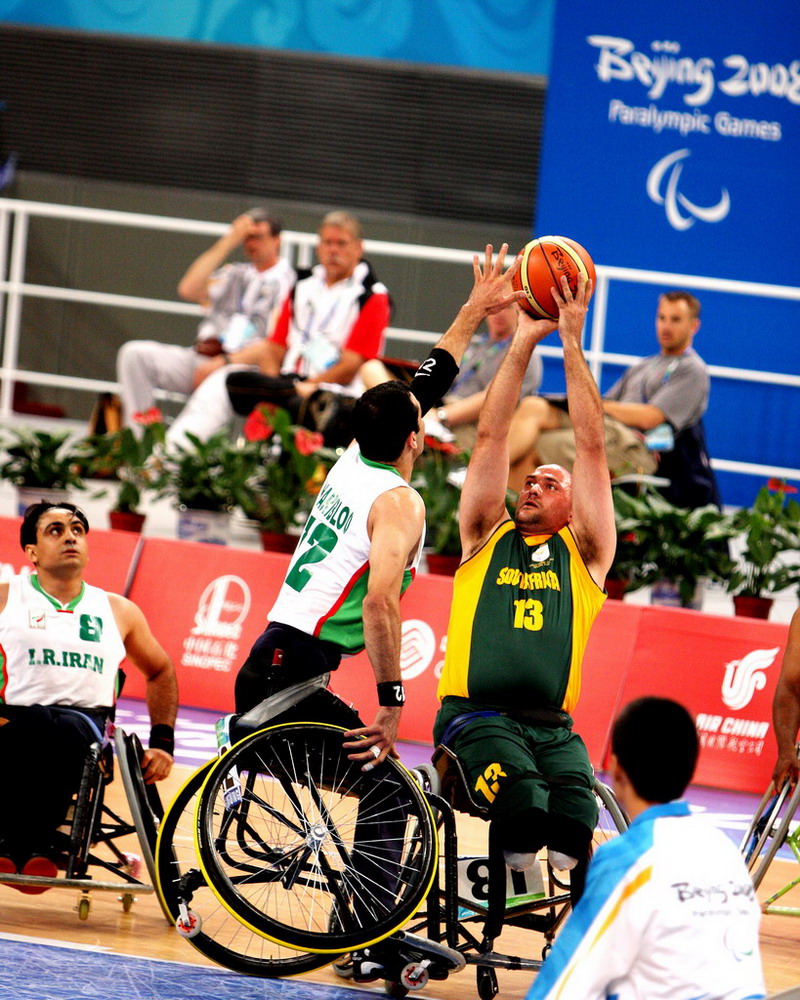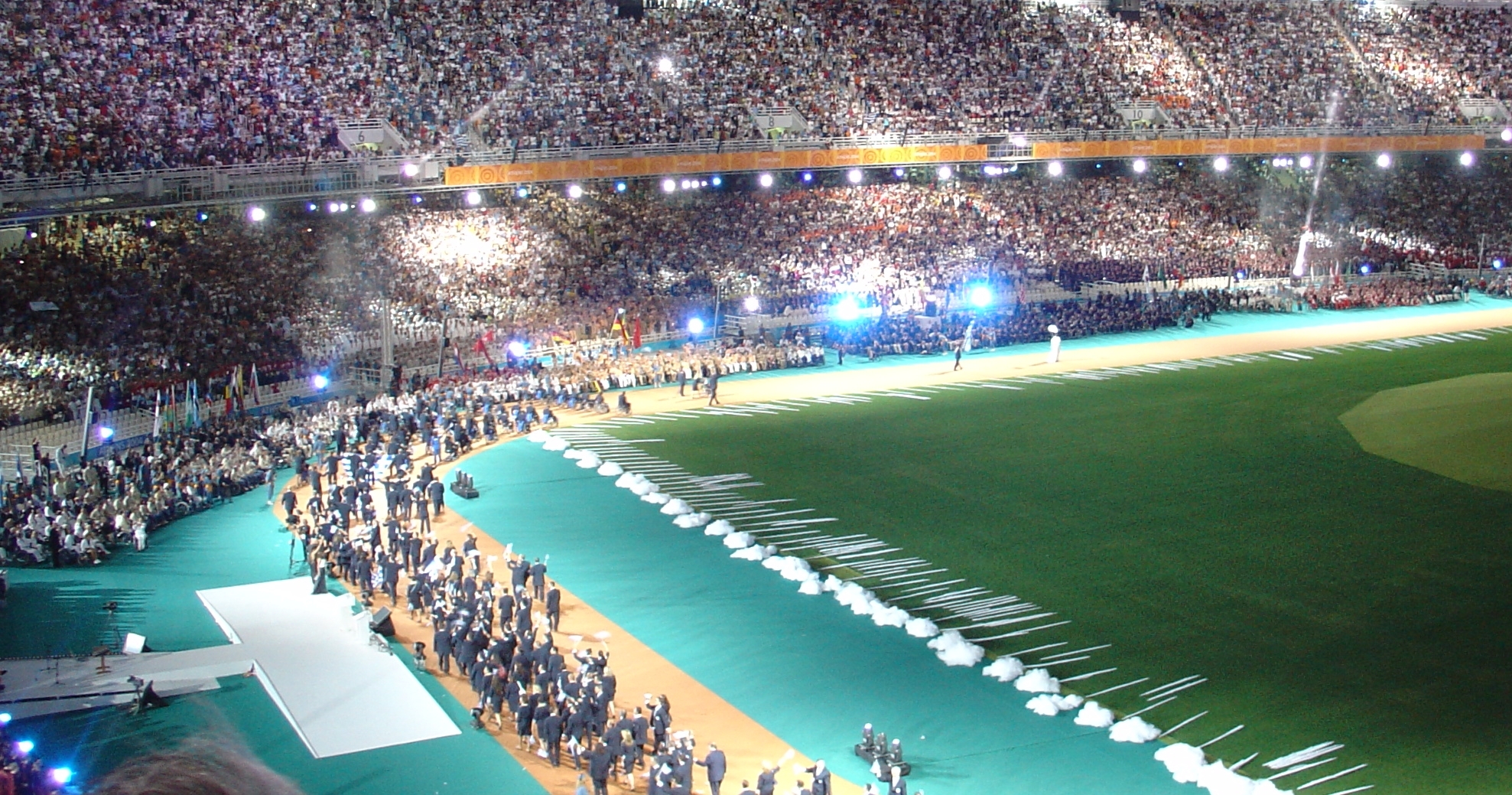|
Carol-Eduard Novak
Carol-Eduard Novak ( hu, Novák Károly Eduárd, ; born 28 July 1976) is a Romanian road and track racing cyclist, who currently rides for UCI Continental team . Initially a speed skater, Novak lost one of his feet in a car accident in 1996. Subsequently, he switched to cycling and emerged as a professional cyclist. He took part in his first Paralympics in 2004, followed by two more participations in 2008 and 2012. At the 2008 Paralympic Games, Novak won the silver medal in the individual time trial, thus capturing Romania's first-ever Paralympic medal. At the 2012 Games, he reached further milestones by winning the gold medal in the track pursuit event – the first-ever in the country's Paralympic history – and setting a new world-record time en route to the final. Additionally, he collected a silver medal in the road time trial race. He has been serving as Minister for Youth and Sport in the Cîțu Cabinet since December 2020. Early life and car accident Novak, who comes ... [...More Info...] [...Related Items...] OR: [Wikipedia] [Google] [Baidu] |
2009 UCI Road World Championships
The 2009 UCI Road World Championships were held in Mendrisio, Switzerland, between September 23 and September 27, 2009. The event consisted of a road race and a time trial for men, women and men under 23. Qualification Schedule Individual time trials ;Wednesday 23 September 2009 * 09:30 - 12:45 Men U23, 33.2 km * 14:00 - 17:15 Women, 26.8 km ;Thursday 24 September 2009 * 11:30 - 17:00 Men Elite, 49.8 km Road race ;Saturday 26 September 2009 * 09:00 - 12:30 Women, 124.2 km * 13:30 - 18:00 Men U23, 179.4 km ;Sunday 27 September 2009 * 10:30 - 17:30 Men Elite, 262.2 km Participating nations Cyclists from 60 national federations participated. The number of cyclists per nation that competed is shown in parentheses. Events summary Medal table References External links * * {{DEFAULTSORT:2009 Uci Road World Championships UCI Road World Championships by year World Championships World Championships A world cha ... [...More Info...] [...Related Items...] OR: [Wikipedia] [Google] [Baidu] |
Cîțu Cabinet
The Cîțu Cabinet was the 131st government of Romania, led by the national liberal (PNL) Prime Minister Florin Cîțu. It was removed from office after a motion of no confidence passed by the Parliament with a record of 281 votes, the largest number of votes on a motion of no confidence since the Romanian Revolution. Formation of the government and negotiations Procedure The prime minister candidate, who is designated by the president, has to request the investiture vote/vote of confidence from the legislature within 10 days from being appointed. Consultations with the president On 6 December 2020, elections for a new Romanian Parliament took place. On 10 December 2020, the incumbent President of Romania, Klaus Iohannis, invited all the parties that acceded into the newly elected Parliament, more specifically PSD, PNL, USR-PLUS, AUR, and UDMR/RMDSZ as well as the representatives of the national minorities for consultations at Cotroceni Palace on 14 December 2020. P ... [...More Info...] [...Related Items...] OR: [Wikipedia] [Google] [Baidu] |
2008 Summer Paralympics
The 2008 Summer Paralympic Games (), the 13th Summer Paralympic Games, took place in Beijing, China from September 6 to 17, 2008. As with the 2008 Summer Olympics, equestrian events were held in Hong Kong and sailing events in Qingdao. It was first time the new Paralympic logo featured in the Summer Paralympics since its rebranding after the 2004 Summer Paralympics. 3,951 athletes from 146 countries took part,"Beijing 2008" the largest number of nations ever (ten more than the 2004 Games in Athens). Five countries ... [...More Info...] [...Related Items...] OR: [Wikipedia] [Google] [Baidu] |
Krónika
Krónika ( en, Chronicle) is the sole Hungarian-language Romania Romania ( ; ro, România ) is a country located at the crossroads of Central, Eastern, and Southeastern Europe. It borders Bulgaria to the south, Ukraine to the north, Hungary to the west, Serbia to the southwest, Moldova to the east, and ...n newspaper of national circulation. It is based in Cluj-Napoca. The circulation is approximately 80,000. External links Online edition Newspapers published in Cluj-Napoca {{Romania-newspaper-stub ... [...More Info...] [...Related Items...] OR: [Wikipedia] [Google] [Baidu] |
Tour Of Szeklerland
The Tour of Szeklerland is a European cycling stage race held in Romania. Since 2008, the race has been organised as a 2.2 event on the UCI Europe Tour The UCI Continental Circuits are a series of road bicycle racing competitions which were introduced in 2005 by the Union Cycliste Internationale (UCI) to expand cycling around the world. The five circuits (representing the continents of Africa, the .... Winners External links * UCI Europe Tour races Cycle races in Romania Recurring sporting events established in 2008 2008 establishments in Romania Summer events in Romania {{Romania-sport-stub ... [...More Info...] [...Related Items...] OR: [Wikipedia] [Google] [Baidu] |
2004 Summer Paralympics
) , nations = 136 , athletes = 3,806 , events = 519 in 19 sports , opening = 17 September , closing = 28 September , opened_by = President Costis Stephanopoulos , cauldron = Georgios Toptsis , stadium = Olympic Stadium , summer_prev = Sydney 2000 , summer_next = Beijing 2008 , winter_prev = Salt Lake City 2002 , winter_next = Turin 2006 The 2004 Summer Paralympics ( el, Θερινοί Παραολυμπιακοί Αγώνες 2004), the 12th Summer Paralympic Games, were a major international multi-sport event for athletes with disabilities governed by the International Paralympic Committee, held in Athens, Greece from 17 to 28 September 2004. 3,806 athletes from 136 National Paralympic Committees competed. 519 medal events were held in 19 sports. Four new events were introduced to the Paralympics in Athens; 5-a-side football for the blind, quads wheelchair tennis, and women's competitions in judo and sitting volleyball. Following a ... [...More Info...] [...Related Items...] OR: [Wikipedia] [Google] [Baidu] |
University Of Bucharest
The University of Bucharest ( ro, Universitatea din București), commonly known after its abbreviation UB in Romania, is a public university founded in its current form on by a decree of Prince Alexandru Ioan Cuza to convert the former Princely Academy into the current University of Bucharest, making one of the oldest modern Romanian universities. It is one of the five members of the ''Universitaria Consortium'' (the group of elite Romanian universities). The University of Bucharest offers study programmes in Romanian and English and is classified as an ''advanced research and education university'' by the Ministry of Education. In the 2012 QS World University Rankings, it was included in the top 700 universities of the world, together with three other Romanian universities. History The University of Bucharest was founded by the Decree no. 765 of 4 July 1864 by Alexandru Ioan Cuza and is a leading academic centre and a significant point of reference in society. The Unive ... [...More Info...] [...Related Items...] OR: [Wikipedia] [Google] [Baidu] |
Hungary
Hungary ( hu, Magyarország ) is a landlocked country in Central Europe. Spanning of the Pannonian Basin, Carpathian Basin, it is bordered by Slovakia to the north, Ukraine to the northeast, Romania to the east and southeast, Serbia to the south, Croatia and Slovenia to the southwest, and Austria to the west. Hungary has a population of nearly 9 million, mostly ethnic Hungarians and a significant Romani people in Hungary, Romani minority. Hungarian language, Hungarian, the Languages of Hungary, official language, is the world's most widely spoken Uralic languages, Uralic language and among the few non-Indo-European languages widely spoken in Europe. Budapest is the country's capital and List of cities and towns of Hungary, largest city; other major urban areas include Debrecen, Szeged, Miskolc, Pécs, and Győr. The territory of present-day Hungary has for centuries been a crossroads for various peoples, including Celts, Ancient Rome, Romans, Germanic peoples, Germanic trib ... [...More Info...] [...Related Items...] OR: [Wikipedia] [Google] [Baidu] |
Budapest
Budapest (, ; ) is the capital and most populous city of Hungary. It is the ninth-largest city in the European Union by population within city limits and the second-largest city on the Danube river; the city has an estimated population of 1,752,286 over a land area of about . Budapest, which is both a city and county, forms the centre of the Budapest metropolitan area, which has an area of and a population of 3,303,786; it is a primate city, constituting 33% of the population of Hungary. The history of Budapest began when an early Celtic settlement transformed into the Roman town of Aquincum, the capital of Lower Pannonia. The Hungarians arrived in the territory in the late 9th century, but the area was pillaged by the Mongols in 1241–42. Re-established Buda became one of the centres of Renaissance humanist culture by the 15th century. The Battle of Mohács, in 1526, was followed by nearly 150 years of Ottoman rule. After the reconquest of Buda in 1686, the ... [...More Info...] [...Related Items...] OR: [Wikipedia] [Google] [Baidu] |
Luduș
Luduș (; Hungarian: ''Marosludas'' or ''Ludas''; Hungarian pronunciation: , German: ''Ludasch'') is a town in Transylvania, Romania in Mureș County, 44 km south-west from the county's capital Târgu Mureș. Six villages are administered by the town: Avrămești (''Eckentelep''), Cioarga (''Csorga''), Ciurgău (''Csorgó''), Fundătura (''Mezőalbisitelep'' or ''Belsőtelep''), Gheja (''Marosgezse'') and Roșiori (''Andrássytelep''). History * 1330 – First mentioned as Plehanus de Ludas. * 1377 – Mentioned in a transaction between two Hungarian nobles. * 1930 – 5,085 inhabitants. * 1940 to 1944, Hungarians occupied the town. The Jewish population is murdered during the Luduș massacre from 5 to 13 September 1944. * 1960 - Luduș became a town. * 1966 - 11,794 inhabitants. * 2002 - 17,497 inhabitants. Demographics In 2011, it had a population of 15,328; out of them, 65.9% were Romanian, 23.2% were Hungarian, and 6.3% were Roma. In 1850, the town had 1,166 inhabit ... [...More Info...] [...Related Items...] OR: [Wikipedia] [Google] [Baidu] |




